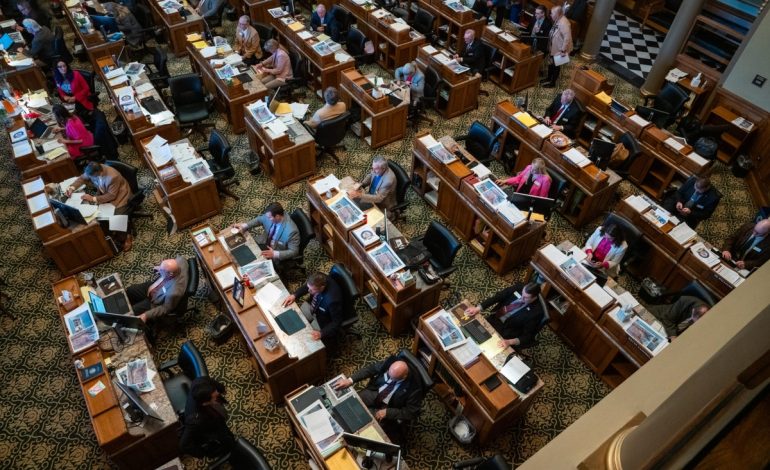Wyoming has joined a growing list of US states requiring age verification for access to online adult content, a move that has reignited national debate over privacy, free speech, and digital regulation, News from the States reports.
The new law, which took effect Tuesday, aims to prevent minors from accessing material deemed “harmful,” but it also introduces new friction for adult users and content providers.
The law mandates that websites hosting explicit content verify users’ ages using government-issued ID or facial recognition technology. Though the legislation bars companies from retaining identification data, critics have expressed skepticism about the enforceability of that safeguard and raised concerns about privacy risks.
As a result, some adult platforms have opted to block Wyoming-based users altogether. Pornhub, one of the largest adult content websites, began restricting access from Wyoming IP addresses this week. In a message to users, the company argued that mandatory ID checks could undermine privacy and push users toward unregulated websites with less robust safety measures.
Pornhub’s stance mirrors its actions in 19 other states that have passed similar laws. In a video message to visitors, adult film performer and activist Cherie DeVille advocated for device-based verification systems instead, which would label specific devices as adult- or child-accessible, without collecting personal data.
Wyoming’s legislation follows a key US Supreme Court decision last week, which upheld Texas’ age-verification law in a 6-3 ruling. Writing for the majority, Justice Clarence Thomas argued that requiring identification to access adult content online was a legitimate extension of states’ efforts to shield minors from explicit materials — similar to restrictions on the sale of adult magazines in stores.
In dissent, Justice Elena Kagan raised concerns about potential privacy violations. She questioned whether adults could safely trust website operators — or the broader digital ecosystem — with sensitive personal data tied to their online behavior.
The Supreme Court’s ruling has emboldened Wyoming lawmakers. Rep. Martha Lawley (R-Worland), who sponsored the bill, said she intends to introduce amendments next session that could add criminal penalties and give state law enforcement a role in enforcement. The current law allows individual residents to sue non-compliant companies but includes no state-imposed fines or prosecution.
Lawley argued that advances in age verification technology have reduced the burden on adults and made regulation more feasible. However, earlier rulings in related cases expressed concern that such technology could still allow the state — or bad actors — to monitor adults’ private online activity.
The bill passed through the Wyoming Legislature with relatively little public opposition, despite its potential implications for privacy and digital rights. Only a handful of lawmakers voted against it, including the state’s two Senate Democrats and Rep. Karlee Provenza (D-Laramie), who expressed concern about the risk of identity theft and overreach.
“We live in a world where countless people fall victim to online scams,” Provenza said in a statement. “The government just made it easier for people to ask for IDs for no legitimate purpose.”
Despite its relatively smooth passage, the law’s implementation could draw more attention now that platforms have begun restricting access and public awareness grows. Observers note that enforcement remains a challenge, as many adult websites operate from outside the United States and may not comply with state-level mandates.
Wyoming lawmakers are also exploring similar content restrictions in other areas, including public libraries. Lawley said she believes the Supreme Court’s recent ruling may offer insight into how far state governments can go in regulating access to material they deem inappropriate for minors, even outside the commercial space.
However, the Wyoming Library Association pushed back, maintaining that access to books and materials should be guided by parental discretion rather than state law.
“Children’s access to library materials is a parent’s responsibility,” said Lindsey Travis, the group’s president.










The latest news in your social feeds
Subscribe to our social media platforms to stay tuned